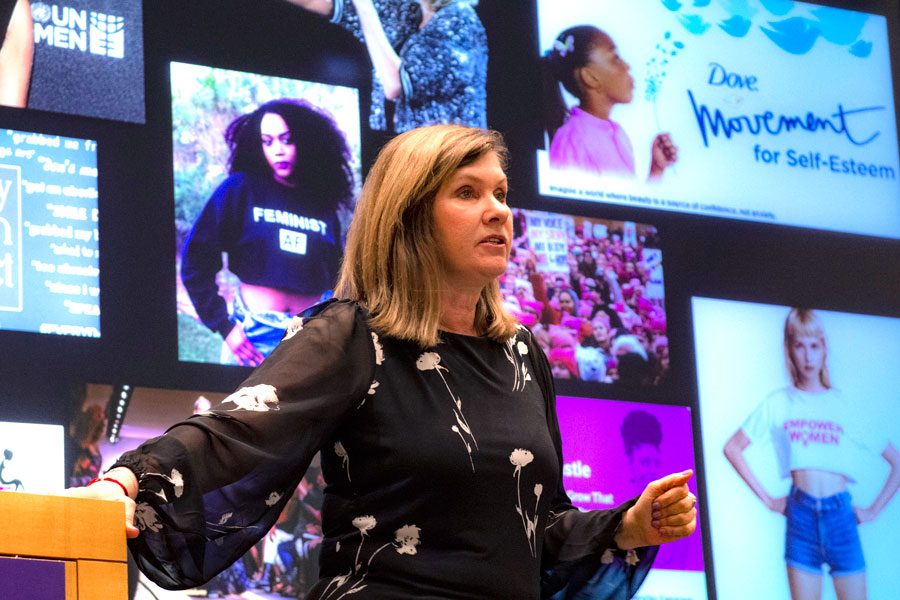Sarah Banet-Weiser talks popular feminism, economic visibility
Jennifer Zhan/Daily Senior Staffer
Sarah Banet-Weiser speaks to a crowd of about 20 at the McCormick Foundation Center. She discussed feminist images in media and popular culture.
April 19, 2019
Sarah Banet-Weiser worries feminism ends with social media posts. Instead, she wants there to be more critical thinking about feminism in media.
Banet-Weiser, a professor of media and communications at the London School of Economics, spoke Thursday to a crowd of about 20 on popular feminism and its connection to Margaret Atwood’s novel “The Handmaid’s Tale” and its adapted Hulu drama. The event was put on by One Book One Northwestern.
Banet-Weiser contextualized the original novel and the Hulu adaptation, drawing attention to the historical periods of feminist political debates. As a text, she said “The Handmaid’s Tale” reflects societal regulations of women’s freedom, especially with regards to reproductive rights.
During her talk, Banet-Weiser addressed the modern age of technology and how platforms like social media can spread feminist ideologies. She said the spread of feminist ideologies leads to “popular feminism” — her term for the way certain images of feminism become visible and others invisible. Banet-Weiser said popular feminism can also undermine the political foundation of the movement.
“Focusing just on the kind of affirmational parts of popular feminism allows us to not see the actual violence and vitriol and viciousness that is happening,” Banet-Weiser said.
Banet-Weiser displayed images of feminist and “The Handmaid’s Tale” themed merchandise, now devoid of their original political meanings, to demonstrate how feminist visibility can be commodified.
To connect the talk’s themes back to “The Handmaid’s Tale”, she showed a picture of a pair of wedding glasses that implied the possession of the wife by her husband through their union. Although they reference the book, the glasses eschew the original political commentary of the work.
Banet-Weiser elaborated that these economic structures make feminism a somewhat individual practice, as if one could buy a sweater or a pin and become a feminist. She said the political meaning of feminism is diffused through economics and media to make feminism popular.
“It’s great that Sarah Banet-Weiser openly challenged things that we’re doing wrong with feminism,” Weinberg freshman Marren Jenkins said.
Jenkins attended the event as extra credit for her gender studies class. Her professor, Helen Thompson, is also the faculty chair of One Book.
Medill freshman Meredith Ellison said she appreciated that Banet-Weiser’s “scholarly perspective” challenged her to think about “aspects of pop culture … within the context of different theories of feminism.”
Ellison said she appreciated the discussion of social media and hashtags in particular.
Banet-Weiser encouraged the audience to look at feminist media with a more analytical approach.
“What we need to think about is beyond the individual — that it’s not about you and it’s not about me, it’s about a collective politics,” Banet-Weiser said.
Email: [email protected]


